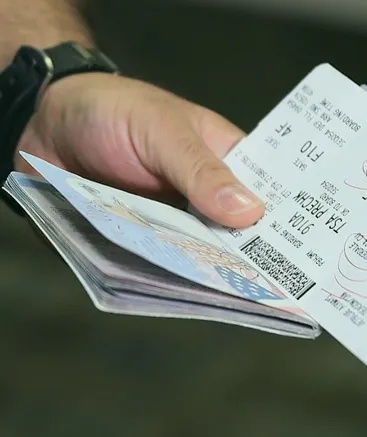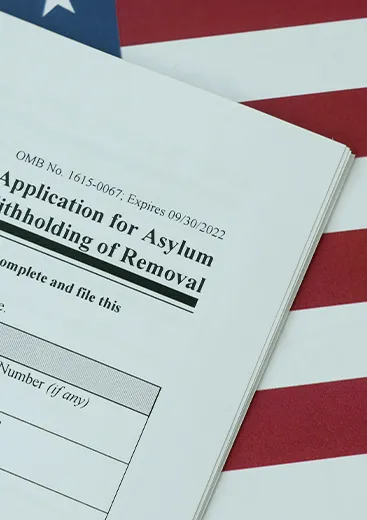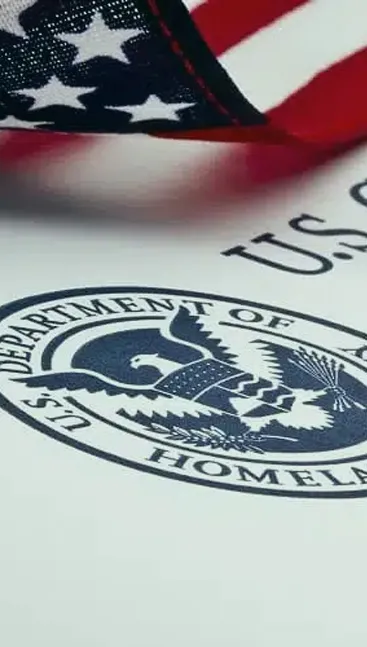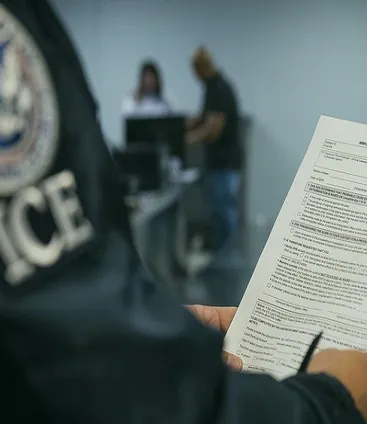MON – FRI (8am - 6pm)
A tourist visa, also called B-2 visa in the U.S., is a non-immigrant visa intended for individuals who wish to visit the country temporarily for leisure, tourism, or medical treatment. This visa allows visitors to enter the U.S. for a short period, typically up to six months. What happens to my tourist visa if I apply for asylum is a question that often arises for those considering a change in their visa status.
This visa is not intended for long-term residency, work, or study, and violating these conditions can lead to severe consequences, including deportation and bans on future entry. Need legal advice? Contact Serving Immigrants today for expert assistance.


Tourist visas come with specific conditions. These include the prohibition of employment, limitations on the duration of stay, and the requirement to maintain a residence in the applicant's home country. What happens to my tourist visa if I apply for asylum should be carefully considered, as the visa holder must demonstrate sufficient ties to their country, such as a job, property, or family.
The visa holder must demonstrate sufficient ties to their country, such as a job, property, or family. Failure to comply with these conditions can lead to the revocation of the visa and potential future entry bans.
When applying for a tourist visa, applicants must clearly state their purpose of visit and prove that they have the financial means to support themselves during their stay. The visa is not a pathway to residency, and any action that suggests a change in the purpose of the visit can complicate the visa.
Asylum is a form of protection granted to individuals who have fled their home country due to persecution or a well-founded fear of persecution based on race, religion, nationality, etc. In this context, what happens to my tourist visa if I apply for asylum becomes a question of transitioning from temporary to permanent protection status.
To be eligible for asylum in the U.S., applicants must meet specific criteria. First, they must demonstrate a well-founded fear of persecution in their home country due to one of the protected grounds.
Additionally, they must apply for asylum within one year of their last arrival in the U.S., unless they can show extraordinary circumstances that prevented them from applying within this timeframe. Criminal history or involvement in persecution can disqualify an individual from receiving asylum. What happens to my tourist visa if I apply for asylum depends largely on these eligibility factors.

Applying for asylum while on a tourist visa can have significant immediate effects on the visa holder's status. What happens to my tourist visa if I apply for asylum is important because a tourist visa is granted based on the applicant's intent to stay temporarily, but filing for asylum indicates a desire to remain in the U.S. permanently. This change in intent can lead to the tourist visa being considered invalid, as the conditions under which it was granted are no longer applicable.
Once an asylum application is filed, the U.S. government may view the tourist visa as null and void, especially if there is suspicion that the visa was obtained with the intent to apply for asylum. What happens to my tourist visa if I apply for asylum is closely tied to these suspicions and can impact the outcome of the case. If you need legal advice, we have the best asylum expert attorneys. Contact us right now.

One of the significant risks of applying for asylum while holding a tourist visa is the potential for accusations of visa fraud. What happens to my tourist visa if I apply for asylum when intent is questioned is crucial to understand. For the U.S., it is important to be transparent about one's intentions in the visa process.
If it is determined that the tourist visa was obtained under false pretenses, specifically with the intent to apply for asylum, the visa holder could face serious legal consequences, including deportation.
Moreover, if the asylum application is denied, the individual may be subject to removal proceedings, and their chances of obtaining any other type of visa in the future could be severely compromised. It is crucial for anyone considering this option to seek legal advice to fully understand the potential consequences.
Overstaying a tourist visa while an asylum application is pending can complicate the applicant's legal status. What happens to my tourist visa if I apply for asylum and overstay is a common concern. While applying for asylum allows the individual to remain in the U.S. legally, an overstay might still raise concerns about the applicant's intentions and credibility. U.S. immigration authorities are particularly attentive to cases where the individual has overstayed their visa, as it may suggest a lack of adherence to U.S. immigration laws.
However, if the asylum application is approved, the overstay may not have long-term consequences. On the other hand, if the asylum application is denied, the overstay could result in a bar from re-entering the U.S. for several years, depending on the length of the overstay. It is important to have the advice of an expert asylum attorney.

An overstay can have long-term effects on the individual’s ability to obtain other types of visas or permanent residency in the future. What happens to my tourist visa if I apply for asylum and overstay is vital for future planning.
U.S. immigration authorities may view the overstay as a sign that the individual is not likely to comply with future visa conditions.
This can also affect the ability to apply for permanent residency (a green card) or U.S. citizenship. Overstaying can complicate the path to becoming a lawful permanent resident and may require additional legal steps to resolve. It is crucial to avoid overstaying a visa and to take legal actions, such as applying for asylum, before the visa expires.
This all-inclusive list is aimed at providing the step-by-step instructions for the U. S. citizens and LPRs who are applying for a Green Card as the sponsor of their spouse.
If the asylum application is approved which provides protection from deportation and the right to remain in the U.S. indefinitely. Asylees are also eligible to apply for permanent residency one year after being granted asylum. Also, it allows the individual to work legally in the U.S., etc.
If the asylum application is denied, the applicant may be placed in removal proceedings. However, there are alternative forms such as withholding of removal or protection under the Convention Against Torture.
The denial of asylum does not necessarily mean immediate deportation. The individual may have the opportunity to appeal the decision or apply for other forms of relief. Contact us right now. We have the best asylum expert attorneys.

This FAQ section addresses some commonly asked questions about what happens to my tourist visa if I apply for asylum:
Yes, you can apply for asylum while on a tourist visa, but it may affect your visa status and future immigration options.
Applying for asylum may void your tourist visa, as it changes your intent from temporary stay to seeking permanent protection in the U.S.
While not mandatory, legal representation significantly increases your chances of a successful outcome by ensuring your application is properly filed and supported. In serving immigrants we have the best asylum attorneys.
You can remain in the U.S. legally while your asylum application is pending, even if your tourist visa expires during this time.